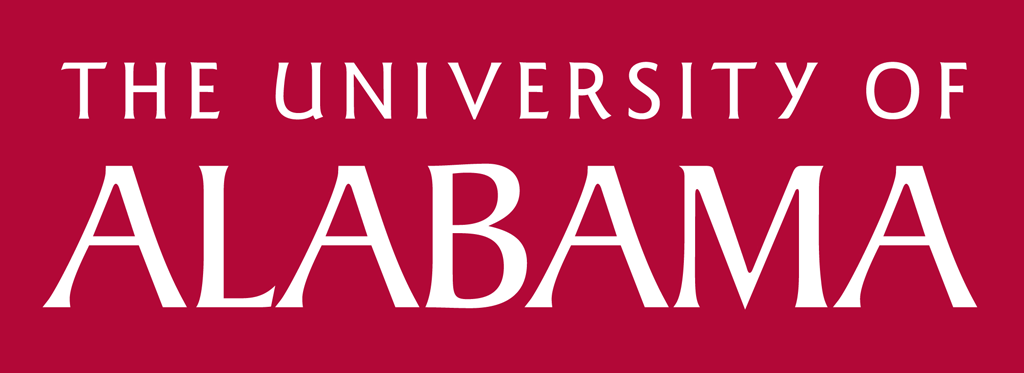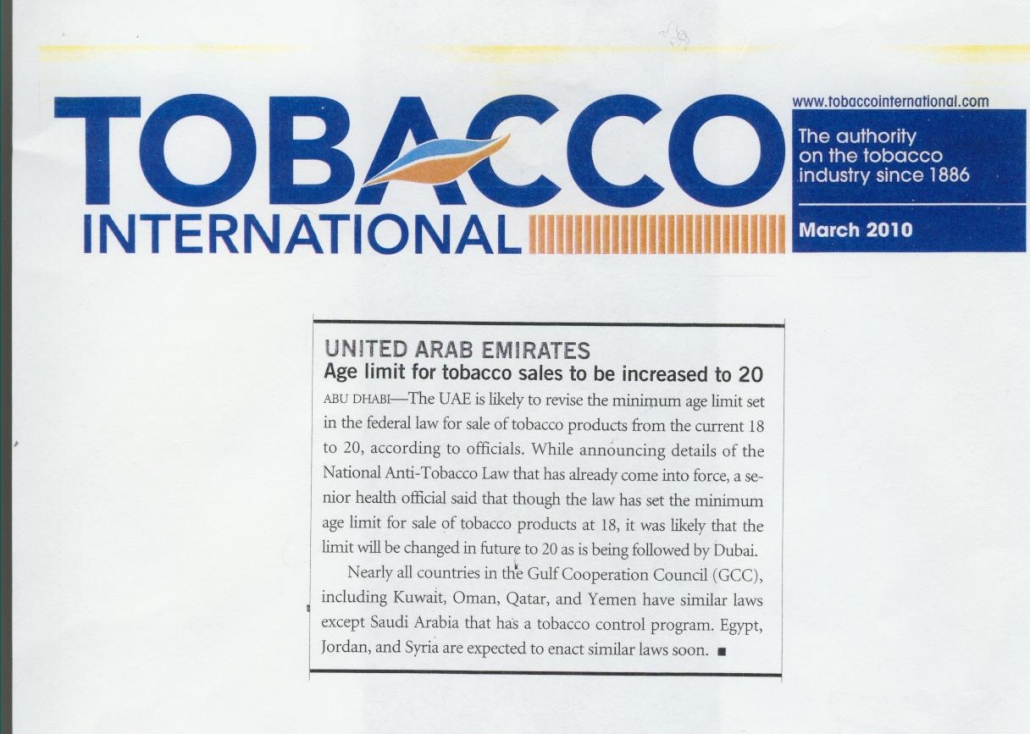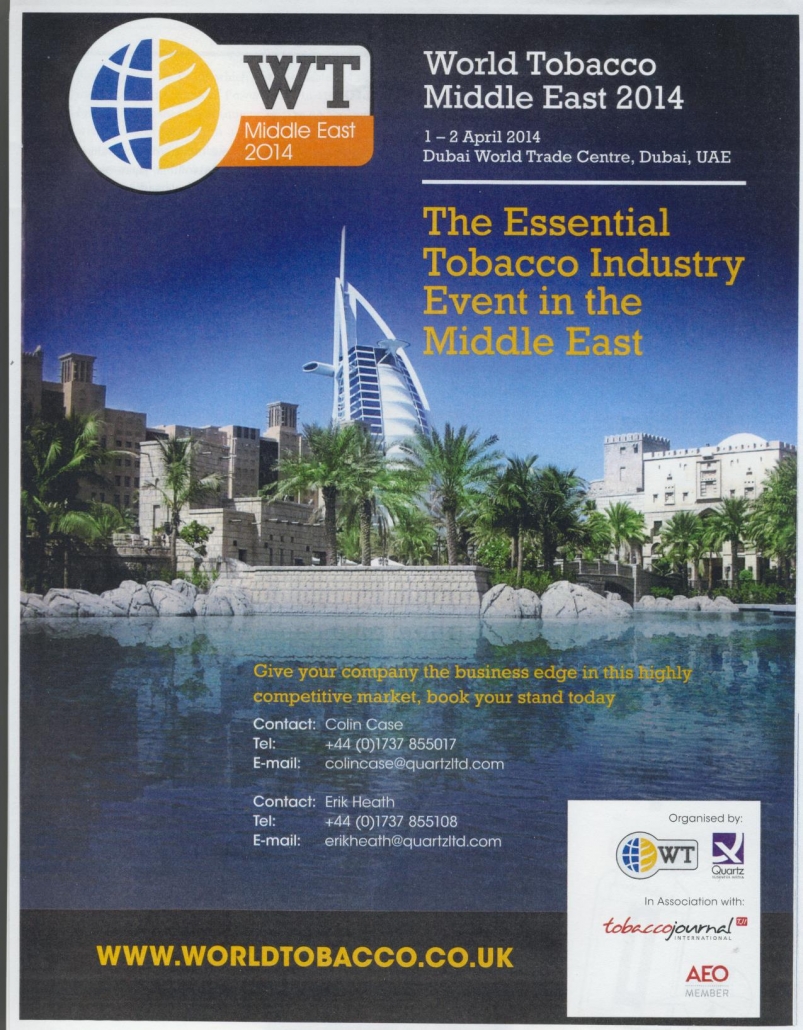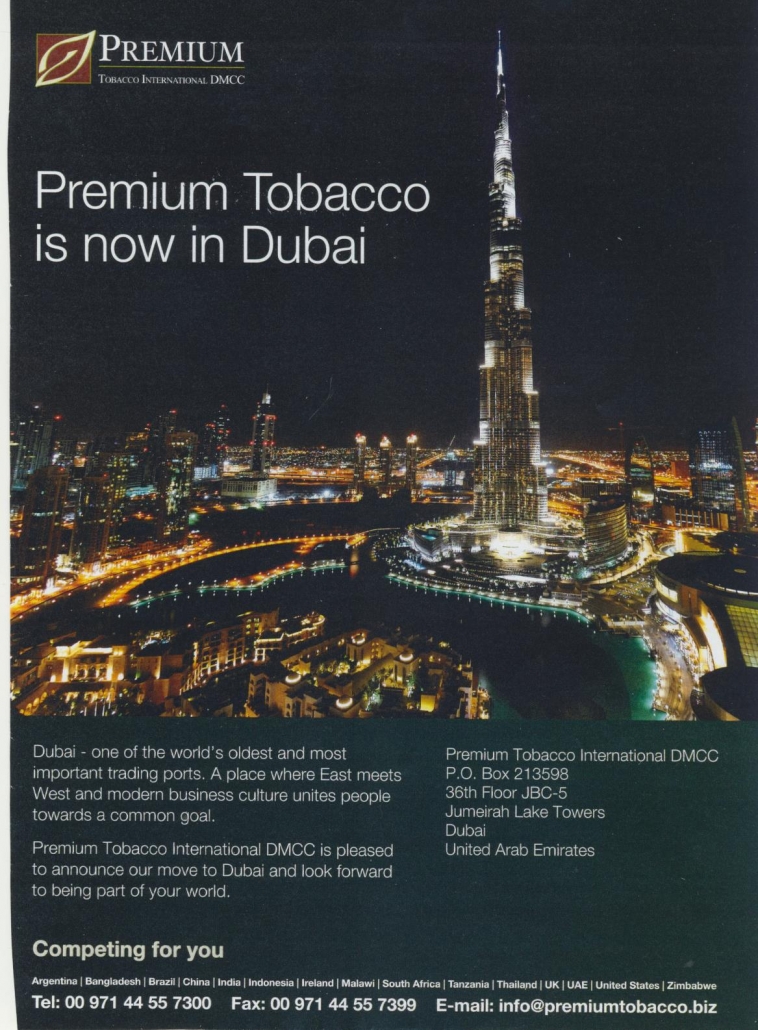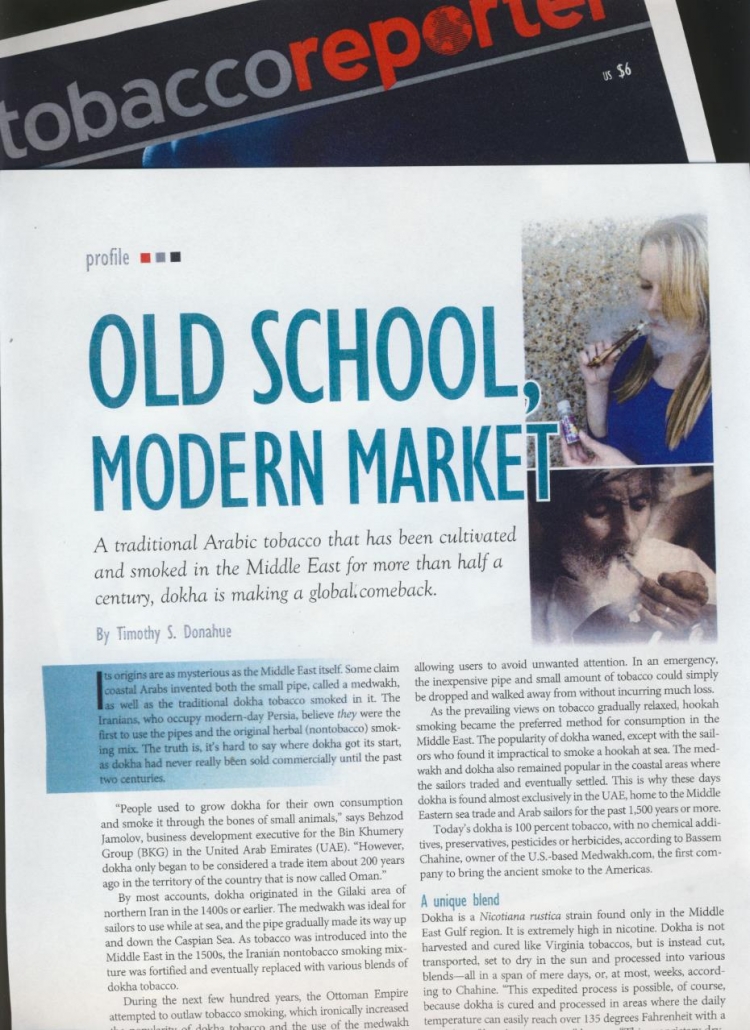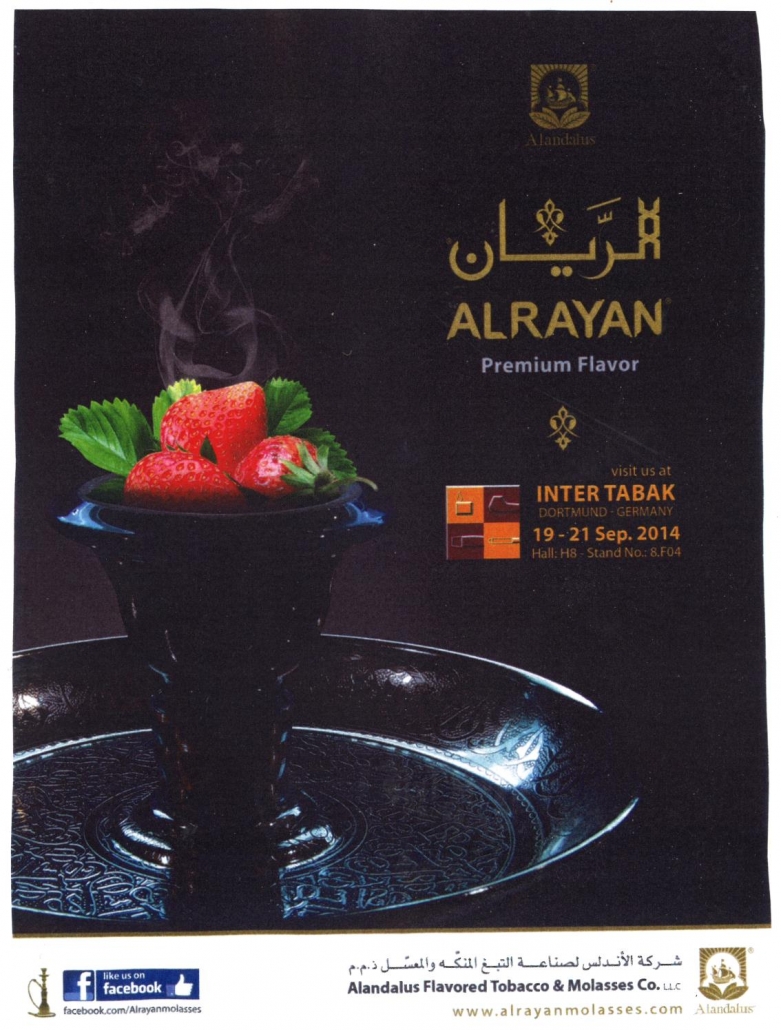Background
Although the United Arab Emirates (UAE) has become one of the most progressive nations in the world in implementing policies to counter cigarette smoking, shisha pipes, and the promotion of tobacco products, the number of tobacco-related businesses in the UAE, including both multinational and regional corporations, has increased. And although great strides have been made in introducing far-reaching anti-tobacco laws, the level of tobacco use by young people in the UAE has been described by health officials as shocking (more than 20% of boys ages 13 to 15 smoke), and the degree of circumvention and pushback remains to be seen.
Intervention or response:
In order to learn how tobacco-related companies in the UAE are regarded within the tobacco industry itself, a literature review was conducted of the tobacco industry trade press over a 15-year period. More than 100 issues of two journals to which the author subscribes (Tobacco Reporter and Tobacco International) were reviewed, and all articles and advertisements related to tobacco manufacturers, distributors, importers, duty-free shops, and suppliers of the tobacco industry with offices in the UAE were identified.
Results and lessons learnt:
A list of more than a dozen tobacco-related companies in the UAE and the nature of their business has been compiled and will be discussed. A summary of articles in the public health literature about tobacco control efforts in the UAE will also be presented. Conclusions and key recommendations: While the paradox of a growing tobacco-related business sector in the UAE in the face of stepped-up tobacco control policies doubtless relates principally to the economic strength of the nation and its rising role as one of the world’s leading ports and international business centers, it is essential for those involved in tobacco control to be knowledgeable about, and to be prepared to address, the tobacco-related enterprises in their nation. This increasing business sector–a source of employment and revenue–represents an ever-present economic and political challenge to efforts to discourage tobacco consumption, to restrict tobacco use in public places, and to eliminate the promotion of tobacco products.


